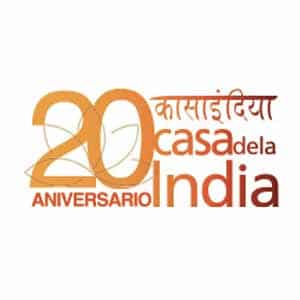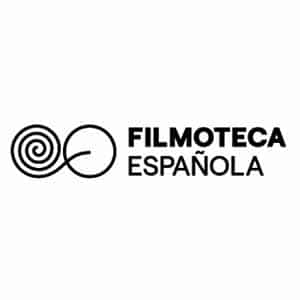The Romanian filmmaker, winner of the Palme d’Or at Cannes for 4 Months, 3 Weeks, 2 Days, said that “it is very important to decide what values you want to share through film”
The Romanian filmmaker Cristian Mungiu gave a master class this Wednesday, 26 October, in the Miguel Delibes Hall of the Teatro Calderón, as part of the cycle dedicated to him by the 67th edition of the Valladolid International Film Week, in which he reviewed his career, detailed his working method and analysed the future of the film world.
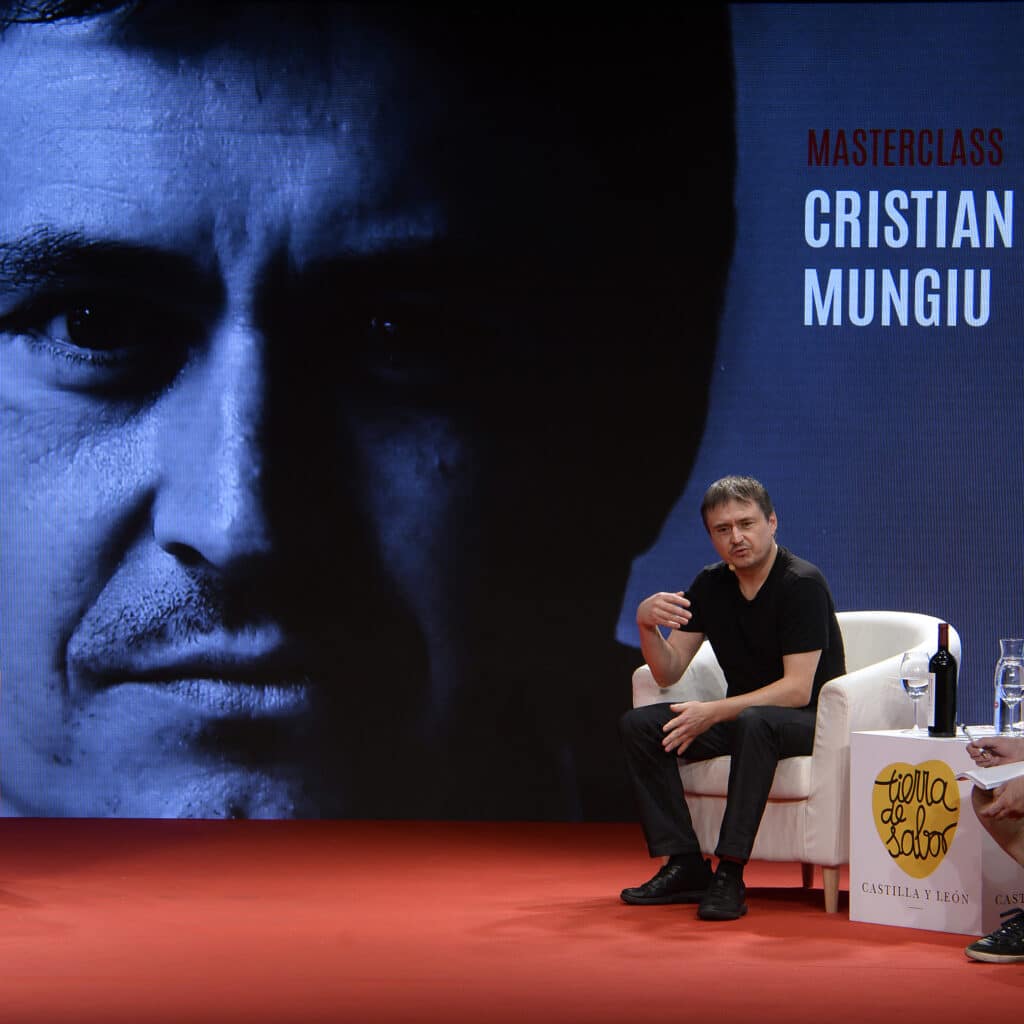
“If you start so high, you’re going to have to climb even higher; you have a lot of pressure and responsibility”, acknowledged Mungiu, in reference to his triumph at the Cannes Festival in 2007 with his second film, 4 months, 3 weeks, 2 days, before assuring that his own cinematographic style is based on the realisation that he gets his own inspiration by directing from reality and not inspired by cinema, since “cinema is already an interpretation of life itself”. Along the same lines, he declared that this was the reason why he set out to create a type of cinema in which “each experience is filmed as a continuum”. “All my films are a continuum,” he concluded.
“It is very important to decide from the beginning what kind of film you want to make and what values you want to share through film”, said the filmmaker, since “without being clear about this, it is very difficult to continue”. He went on to explain his way of working: “I try to talk about human nature, but without imposing my own conclusions: I present the context in which the characters take decisions on issues that seem important to me, and I let the audience decide based on what they have seen on the screen”.
Along the same lines, Mungiu, who has declared that he always starts his projects from real events, pointed out that a film “is not a thesis, it doesn’t have to be didactic”. “I have characters who, like all people, are ambiguous, they are not one hundred percent coherent. The question is not to place the characters in a coherent line to transmit the message I want to communicate”, he said, and then revealed that, after writing the script, what he does is reread it to make sure that there is no character who is totally coherent, so that the work leaves room for ambiguity. “If a film is verbally interpretable only in a unidirectional way, it’s no good.
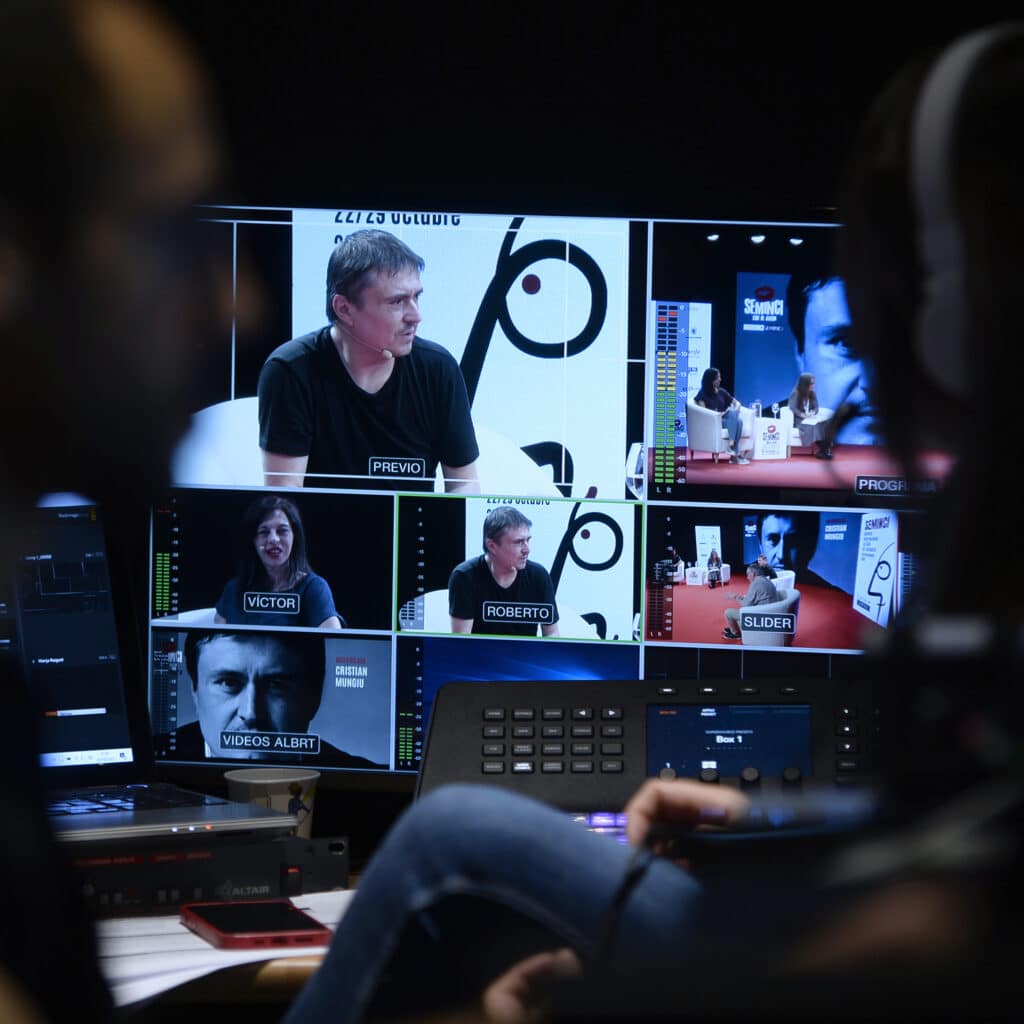
Cristian Mungiu also explained the particular way he works with the actors who participate in his projects. “In casting, I try to find personalities who are close to what I have imagined”. He explained that he makes an initial selection of 50 candidates, which is then reduced to ten. “The most important thing is that they understand the subtext of the dialogue, which in the end is what I want to communicate; if the actor understands this subtext, you can work with him”. He also assured that this working technique also has its difficulties: “Not all interpreters can work with this level of precision”.
He also explained the other elements that he has adopted throughout his career, which give his films their cinematic distinction. In relation to the placement of the camera on the set, Mungiu explained that his aim is “for the spectators to know what the character knows”, so that his role as director remains in the background: “Cinema is a very manipulative language, so the less I interfere, the better”. “My challenge is to achieve a level of tension and vibrancy, but being faithful to the style that I had invented,” he said.
Regarding the future of the cinematographic world, he explained that cinema is changing “spectacularly” due to the influences of the Internet, platforms, mobiles…, a fact that shows how “audiences are experiencing very short formats and outside traditional cinemas”. “I don’t think that the audience has to adapt to what is right; it is the filmmaker who has to understand how the situation is changing and adapt to what is there”, to recognise that “this type of auteur cinema is nearing its end”.
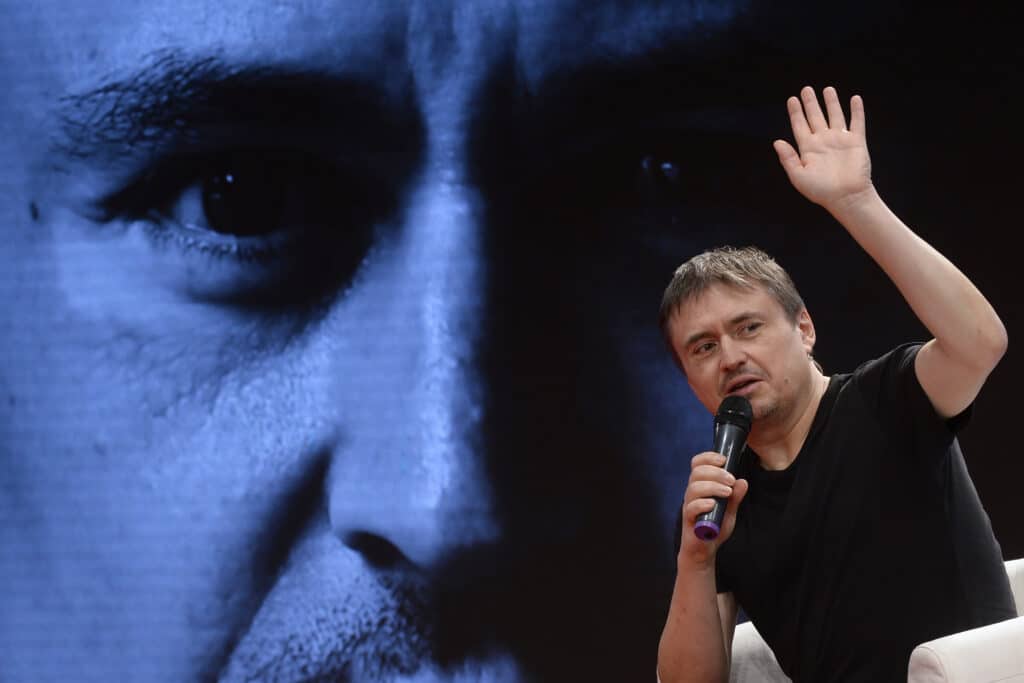
Asked about his future and his intention to continue working in his country, narrating what is happening around him, the filmmaker assured that, as a director, the most important thing is to describe situations that he knows well, which is why he continues to make films in Romania. However, he pointed out that, although his films are set in his native country because he understands the people and the context better, “most of the situations that occur can be understood in other places”. “I’m not interested in making a film in English just because I think I’ll have a wider audience; what I need is to keep the interiority and the truth that I have when I shoot in Romania.






























